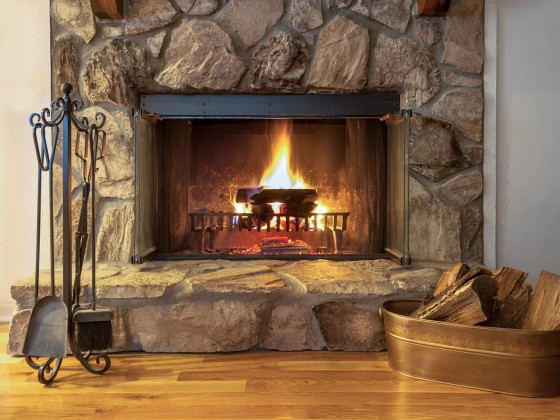What's Hot: Cash Remained King In DC Housing Market In 2025 | 220-Unit Affordable Development Planned Near Shaw Metro
 The Essential Guide to Being an Amateur Landlord in DC
The Essential Guide to Being an Amateur Landlord in DC
✉️ Want to forward this article? Click here.
This article was originally published several years ago on UrbanTurf, but we are re-publishing today to remind readers of the steps that property owners can take to become amateur landlords.
UrbanTurf occasionally gets questions about the steps that need to be taken to legally rent out a room, basement or income unit in the city, so we’ve compiled a handy guide to help out.
Below, we have covered the basics for someone that is looking to be a landlord. In addition to this advice, we recommend consulting the appropriate DC agency if you’re confused or unsure whether your unit needs a particular certification.
Step 1: Make Your Place Legal
The first thing you should do before you rent is make sure your unit is up to code and legally rentable. If you’re renting out a house or a single apartment, you’ll need to get a basic one-family business license to proceed, as well as a certificate of occupancy. If you’re renting out an English basement or a two-unit building, you’ll need a two-family rental license. Multi-family buildings with three or more units require different licensing and aren’t covered in this article.
story continues below
loading...story continues above
An inspection of the rental is required when getting the license, so your unit will need to be up-to-code. You have to get an inspection within 45 days of obtaining your license. You can make an appointment by contacting DC's Department of Buildings.
Step 2: Consider a Property Management Company
If your unit is legal and you’re interested in skipping the hassle outlined in steps 3-7, consider using a property management company that will take care of the rental process for you. Property management companies can charge up to 10 percent of the rent for their services, depending on the company that you use.
Step 3: Figure Out How Much to Charge
What’s your place worth, and how much should you charge? The condition of your rental unit, its location and the time of year you plan to rent it out can all have an impact on price. You’ll want to take into account not just the price of comparable properties in your neighborhood, but also your mortgage, anticipated maintenance costs and time between tenants. Rentometer is a good source for figuring out whether the rent you’re thinking of charging is reasonable, and you can always look on rental sites at similar units in your area to see what they are charging.
Step 4: Consult an Attorney
Consulting with an attorney about your lease and goals for renting is a good idea before getting a tenant into the unit.
Even if you’re using a lease agreement template, in DC it’s wise to spend an hour or two with a tenant-landlord attorney to go over the lease and see if anything needs to be changed or added in.
story continues below
loading...story continues above
Step 5: Have a Maintenance Plan in Place — and Know Your Apartment
Once your house is up to code, fully licensed and ready to rent, it’s time to start thinking about possible tenants, as well as your maintenance plan. In short: prepare for the worst and have a good idea of what condition your rental unit is in. Are the appliances and utilities of good quality and in good condition? That can give you an idea of how much to have stocked away in savings. Plumbing, electricity and other important components can all fail at some point and you will be required to both fix these issues and foot the bill. Have good names on file and try to establish a relationship with a service provider you trust before you ever need to deploy an emergency repair plan.
Make sure to do a careful and extensive walk-through with your tenant prior to move-in. Your property doesn’t need to be in perfect shape, but you and your tenant should be in agreement about the condition of the apartment to avoid any disagreements upon move-out. Attest to the apartment’s move-in condition on a form signed by both you and your tenant.
Step 6: Look for Tenants
With the internet, advertising a property to a wide range of tenants is easy. Make sure your listing is detailed, accurate and includes photographs. If you decide to go with a property management company, they will take care of this step for you.
See other articles related to: amateur landlord
This article originally published at http://dc.urbanturf.production.logicbrush.com/articles/blog/step_by_step_guide_to_amateur_landlord_in_dc/9045.
Most Popular... This Week • Last 30 Days • Ever

Today, UrbanTurf is taking a look at the tax benefits associated with buying a home t... read »

Lincoln-Westmoreland Housing is moving forward with plans to replace an aging Shaw af... read »

The small handful of projects in the pipeline are either moving full steam ahead, get... read »

A potential innovation district in Arlington; an LA coffee chain to DC; and the end o... read »

In this week's Under Contract, we highlight two homes that hadn't been on the market ... read »
DC Real Estate Guides
Short guides to navigating the DC-area real estate market
We've collected all our helpful guides for buying, selling and renting in and around Washington, DC in one place. Start browsing below!
First-Timer Primers
Intro guides for first-time home buyers
Unique Spaces
Awesome and unusual real estate from across the DC Metro














